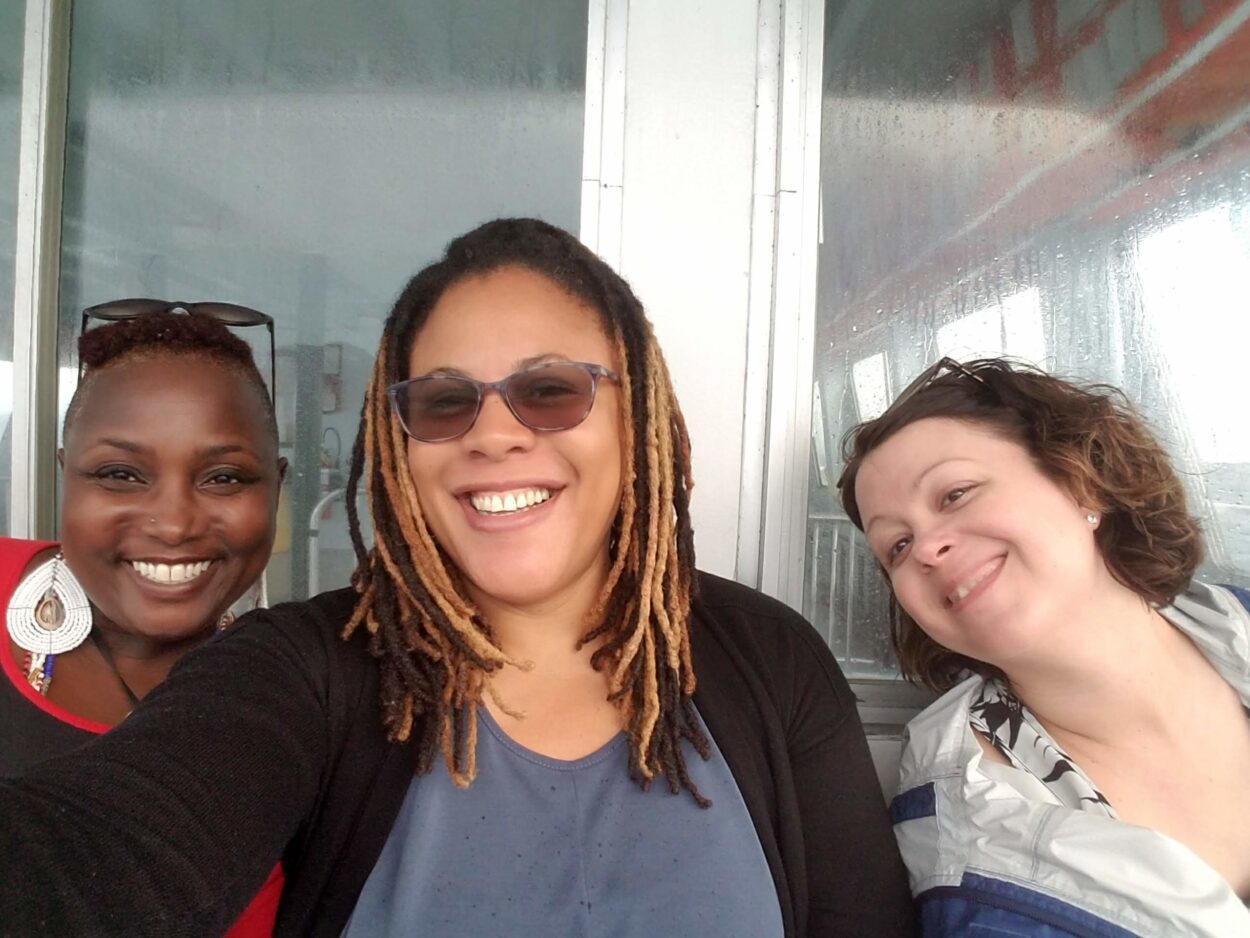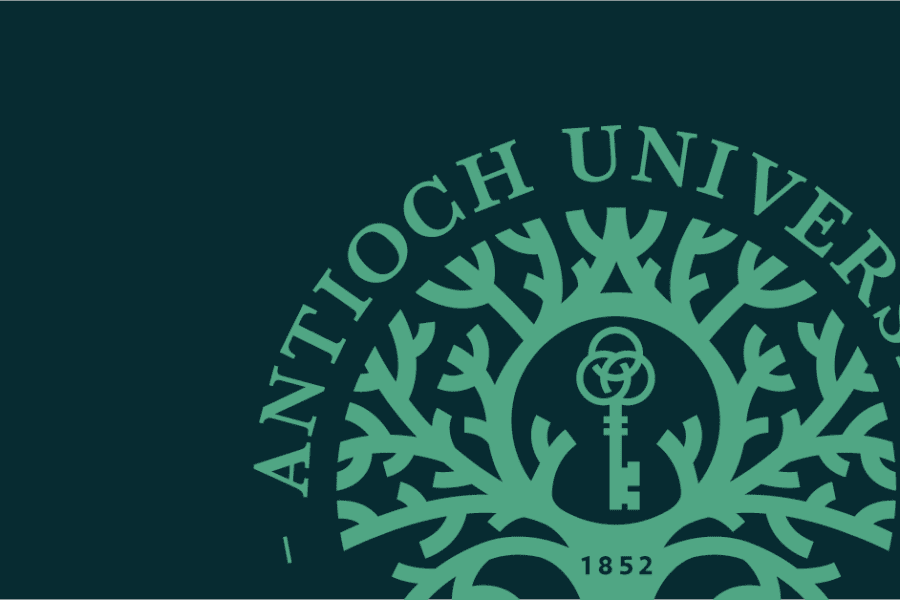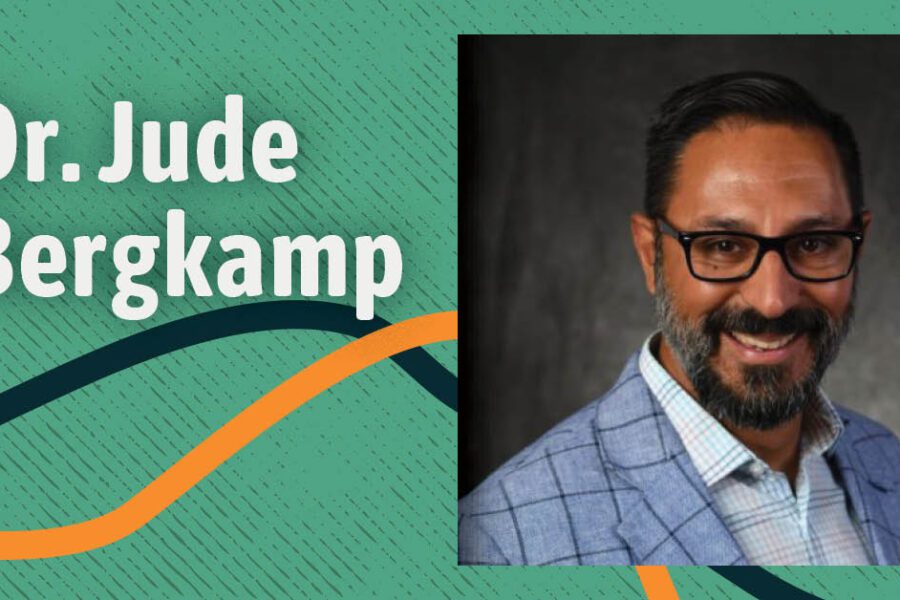When Nicola Smith-Kea ended an email to her two study buddies with the phrase “With Each Other To The End,” she stated out loud the level of devotion that they felt to each other. But it wasn’t until she shortened it to an acronym, WEOTTE, that the three women had their group’s name and rallying cry. The name cemented something that was already and increasingly true: in their years-long journey to complete their PhDs in Leadership and Change at Antioch, they had found a sisterhood of women empowering each other that they could rely on completely, and that would push them to accomplish their dreams.
Three years later, after hundreds of hours of work and helping each other in countless ways, Nicola, who goes by Nikki, and her two study buddies, Angela Quitadamo and Yolandé “Falami” Devoe, each defended their PhD dissertations within a ten-day period. “The universe did conspire with us to ensure that we did defend and finish within days of each other,” says Yolandé. They all passed their defenses, and they are now set to graduate in the first half of 2021.
It wasn’t always an easy journey to get there. Nikki, a Jamaican immigrant to the U.S. who talks with an easy laugh and a to-the-point bluntness, would often get up at 2:30am, write until 7:00 or 8:00am, then go work at her day job for ten hours. Then she’d do it all again. Other times she would take a long weekend or a whole week off work just to focus on her writing. She emphasizes how important her WEOTTE sisters’ accountability was to actually doing this. “Setting those goals and those deadlines was critically important for me to be able to be done when I was.”
For Angela, too, the support and mutual understanding her two comrades offered was key. “I’m a first-generation student,” she explains. “Nobody I live with, nobody I see on a daily basis, has been through this experience.” This could have made her feel isolated. “So your family knows you’re doing homework, but they don’t know what you’re doing. But your girls know what you’re doing.”
Perhaps the member of this trio for whom the support has been most life-giving is Yolandé, an eloquent and organized body liberation coach from Atlanta. She is emphatic in acknowledging the ways her WEOTTE sisters have gone above and beyond as study partners but also friends. “My life has been very unstable during these times of doing my PhD,” she says, moved almost to tears. “I moved three times, was working part-time, and I lost my mother. And these ladies here supported me emotionally and financially through it all. Through it all. So I want that to be put on record. Angela sent me flowers. Nikki sent me money. So again, it’s not just about what we did on paper, and meetings and things. It goes beyond that.”
A Supportive Learning Community
For Angela, finding a community that could support her and expand her horizons was a big part of why she chose Antioch in the first place. Angela grew up in a big Italian family in Boston—you can hear this background in her accent—and she’s had to be driven and competitive to thrive as an academic affairs professional. For graduate school, she knew she wanted support and community. “If I was going to invest this kind of money, this kind of time,” she says, “I wanted a network.”
At Antioch, she found it. The WEOTTE sisterhood’s cohort (Cohort 14) is full of interesting people. “We’ve got religious leaders,” Angela says. “We have folks from the military, we have entrepreneurs, we have folks from other countries, from their late twenties into numbers that we don’t say out loud out of respect for people.” It was also the first cohort in the history of the Graduate School of Leadership and Change (GSLC) to not be majority-white. As Nikki puts it, “It was 50% minorities—which we were no longer the minority—and 50% white.”
Angela says that within the GSLC the WEOTTE sisterhood’s experience is special but not uncommon. “I don’t think that it’s super rare,” she says. She describes the triannual in-person residencies (currently suspended due to the pandemic) as “one hundred people hugging, kissing, screaming, crying, eating, hugging. It’s like nothing I’ve ever seen before. You get that community.”
Nikki is a little more skeptical. “I agree with Angela, but I will still say what we have is special.” She thinks that the WEOTTE sisterhood sets a high standard for other study groups. “People are very aware of us as a group,” she says, “and they look to us as an example of what it needs to be to finish this program. We’ve heard them say, ‘We want to be just like you guys. We want to do what Angela and Yo and Nikki did.’”
A Meetup on Martha’s Vineyard
One of the ways that they came together, deepened their bond, and moved forward in drafting their dissertations was during a weekend trip to Angela’s cottage on Martha’s Vineyard, an island south of Cape Cod that is part of Massachusetts.
Angela is quick to explain that she’s not one of the mega-millionaires who have in the last decades over-run the island. “I have a little cottage,” she says. “I never say house. It’s 690 square feet. It’s 150 years old. It’s just a little tiny place on Martha’s Vineyard that I bought from my grandmother.” It was a natural place for them to gather, so when they started talking about having a writing retreat, she offered it up. That weekend, she happily kicked out her kids, picked her friends up at the airport, and “we took the ferry over.”
As she’s describing the story, Nikki stops her to add a key detail: “Drinking wine.”
“Champagne on the ferry,” says Angela.
“Oh, champagne on the ferry!” says Yolandé. “It was wonderful.”
They spent the weekend writing, talking through ideas, holding mini-workshops, and even scheduling meetings with Antioch faculty. “We thought, Oh, we have the three of us—let’s call the librarian! Walk us through this thing.” Explains Angela, “We had some appointments; we did some goal-setting; it was a celebration. That was what we did very well.”
The Push to the End
Their meetings and support intensified as they neared the end of their PhDs. They supported each other at key moments, as when Angela received an email that there was a change being made to her committee that might set back her defense. “It was like 7:15 in the morning,” she says. “We’re texting, and Nikki picks up the phone and she’s like, ‘Call Laurien! Get it figured out. You’re right!’” She says that there’s a strength that comes from having “that person, at such an early hour, who is 100% in your corner, knows what you need. I think we all had moments like that. And also on the other side of it, every little good thing that happens, this is who you tell first.”
For Nikki, her two study partners became part of her everyday life. “My husband Howard and my son Tyler knew when I was having my WEOTTE meetings,” she says. “They knew that I was meeting Auntie Angie and Auntie Yo, and not to disturb me.”
“We all went through really hard times, and this was our stability,” says Nikki. “If we were crying, we were crying together. We would have writing sessions where we’re not talking, we’re just on Zoom. We’re opening the Zoom, we acknowledge each other, there’s no discussion, we’re just writing for two hours, then we’re closing the Zoom.” She says that “without these two ladies, I still would not be finished. Because my life is ridiculously busy.”
Bringing Their Leadership Into the Wider World
Each of these women continues to be engaged in vital work both inside their communities and for the world. Yolandé wrote her dissertation on the lived experience of African American women and their bodies, using a narrative photovoice methodology in which her subjects actively participated in the research. “The women were amazing,” she says. “It was great being able to hear from them their different yet similar experiences they had with their bodies.” Yolandé, who is a poet, then used poetic transcription to report her subjects’ stories and experiences in poems. She explains that this was a “way of sharing their findings, versus saying, ‘Participant One said…’” Watching and re-watching their Zoom videos was powerful and emotionally taxing, as “I re-lived their stories and their experiences and their feelings, their emotions. And then juxtaposing my own emotions or experiences that were similar. So it was very emotional for me.” Yolandé operates a business, Holistic Alchemy, that advocates body liberation and “unapologetic” self-care, focusing primarily on helping Black women “be liberated from ideologies saying they should look and be a certain way.”
Nikki, meanwhile, is working toward justice building on her years of work in criminal justice reform. She works today analyzing, designing, and executing high-leverage philanthropic investments as a Criminal Justice Manager on the Policing team at Arnold Ventures, a philanthropic LLC that has already given over a billion dollars in grants and other funding. 2020 has been a hard one for a Black woman working in criminal justice reform, and Nikki says that her Jamaican and African American friends have asked her, “What the hell are you doing in this space to begin with?” It can be overwhelming, exhausting. “I lose sleep, thinking about how to fix things.” But at the same time she says that “I truly believe I’m here for a purpose and the universe has put me in this space for a reason. I’ve always pushed for women having a voice, and when I started working in policing I realized they didn’t. And the rebel in me pushed me to stick to this to try to understand it, no matter what, no matter how often I feel like giving up, which, that’s pretty often, especially with what’s going on now.” She recently published an article titled “The Gender Gap in Policing Is a Public Safety Crisis” in The Crime Report. It is related to her dissertation, which focused on female professional advancement to executive leadership positions in law enforcement. She is currently adapting that into a book.
Working in the sphere of education, Angela wrote her dissertation about “how a more reflective and transformational view of classroom assessment with a focus on engagement benefited students and instructors.” She worked directly with community college instructors, using student survey data to better understand the social-emotional climate in classrooms. She says that one of the discoveries of the research—which had to transition online because of the pandemic—was that “the online focus group we formed to discuss the results as a small community of practice offered support to veteran teachers at a time when they needed it most.” She is now working on an executive summary to share with the community college sector around the importance of offering support for faculty during remote learning as she looks for her next professional position in academic student success.
Whatever the next professional and activist roles these three women create for themselves, they are committed to remaining close and continuing to support each other.
Yolandé perhaps puts it best: “They’re my sisters, and my grandchildren will call them ‘Aunties.’ We’ve now extended our family… It’s just so beautiful.”



